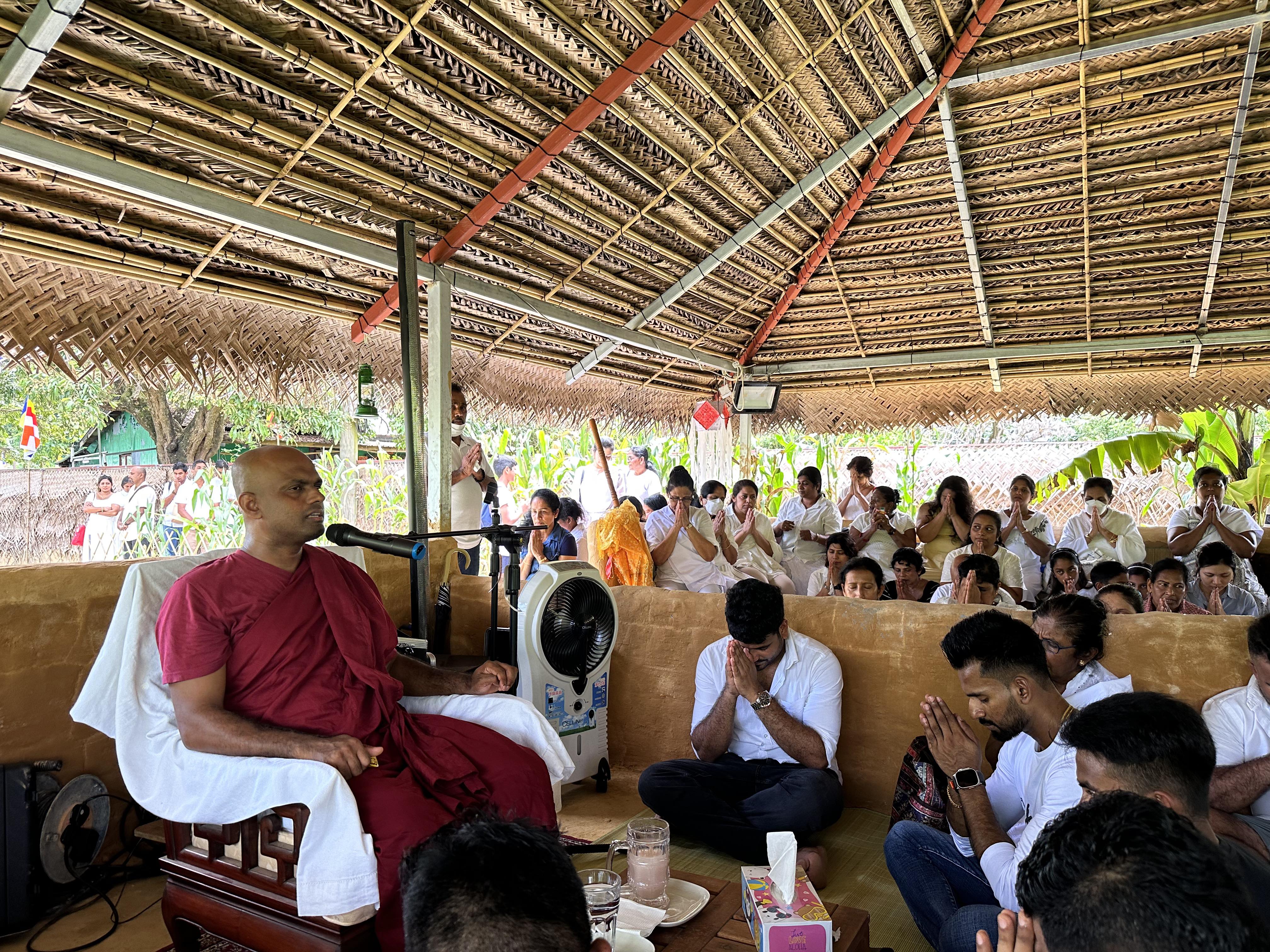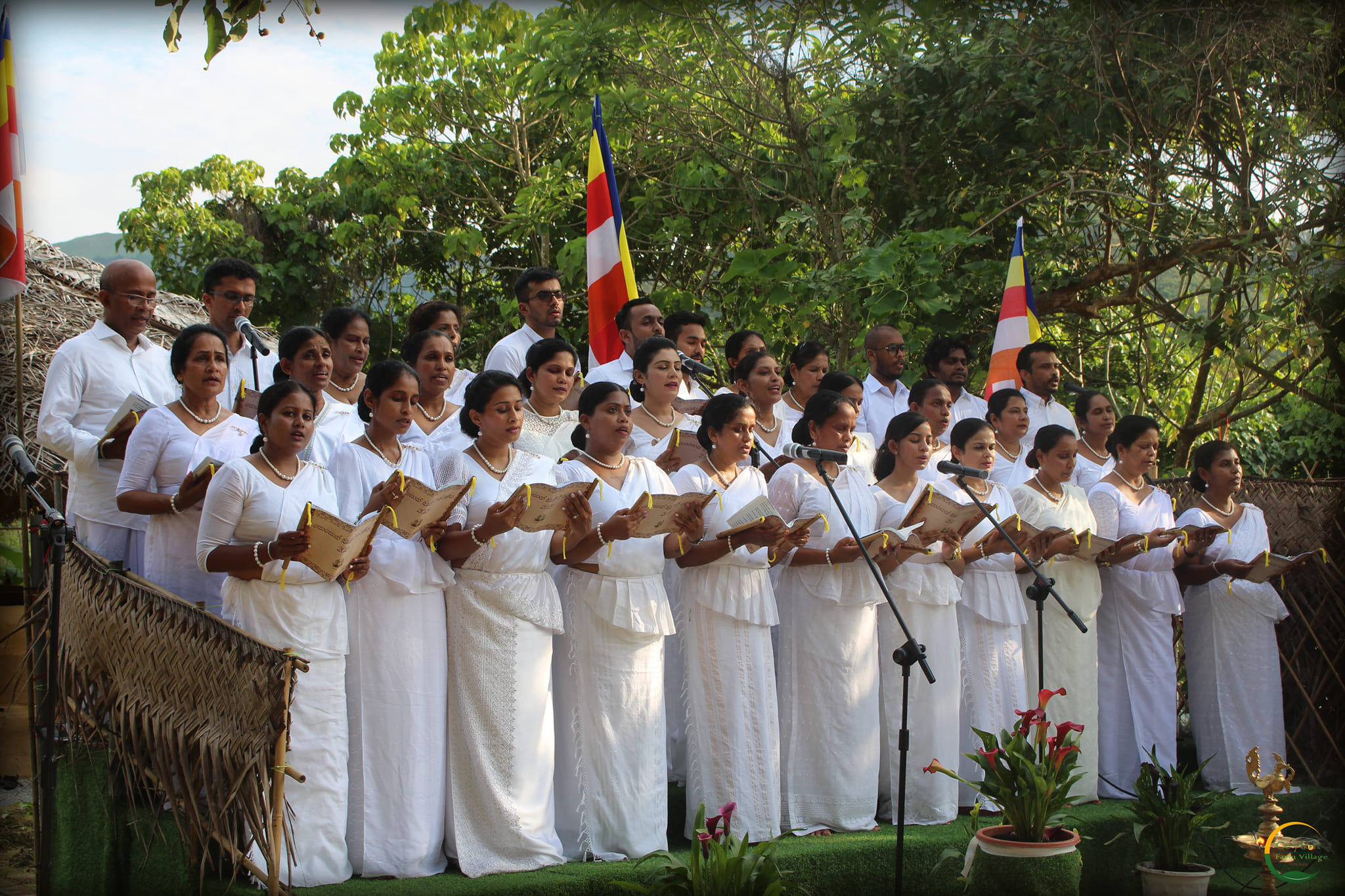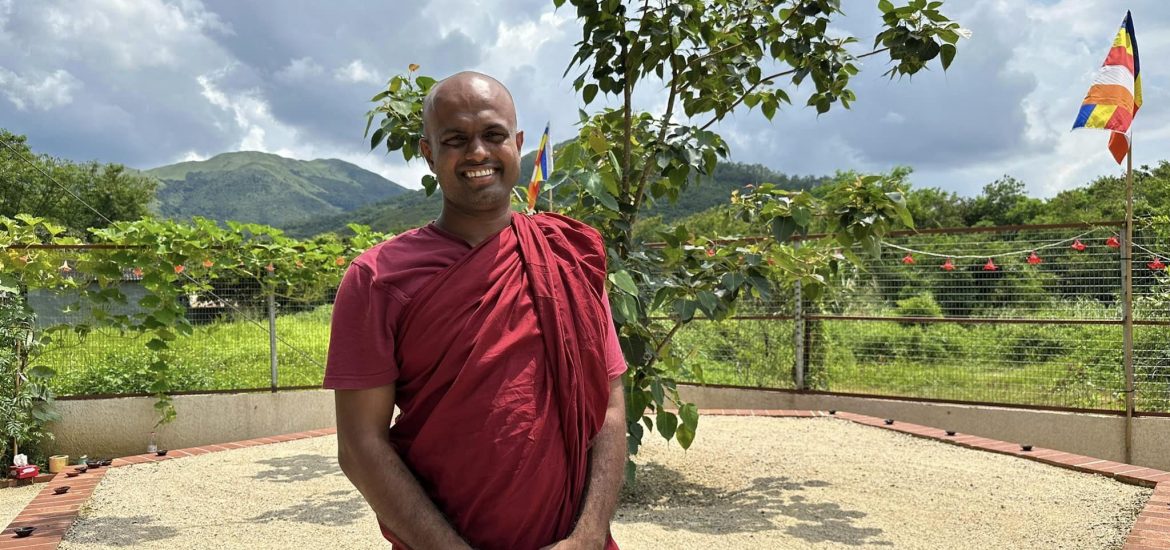Poson, or Poson Poya, is the second most important festival in the Sri Lankan Buddhist calendar. It celebrates a critical milestone in Buddhism’s diffusion to the island of Old Ceylon in the 3rd Century BC, when Arahat Mahinda converted the local king Devanampiyatissa to Buddhism. Mahinda and his sister, the Sanghamitta Bhikkhuni, had arrived in Ceylon to preach the Dharma, having been sent by their father, Ashoka the Great, as monastic emissaries from the Mauryan Empire in India. Sanghamitta would go on to found the women’s monastic order in Sri Lanka, gifting Sri Lanka the proud heritage of being a custodian of early Buddhism and Theravada.
As I remained in Hong Kong this month, I spent this special day of Poson at Ceylon Farm Village, a rural meditation and cultural community that invokes the tranquility, warmth, and homeliness of the island nation’s villages. Originally intended for 3 June, the event was postponed to the 11th due to the exam calendar.
The village is currently rented to the Sri Lankan Buddhist Cultural Center (SLBCC) with a nominal value. This plot of land was effectively lent to SLBCC by its Chinese owner, Mr. Lee (one of the Lees’ properties, a two-storey structure in the complex, serves as a reception building). Mr. Lee’s generosity allowed the foundations of the village to start being built in November 2022.

The speed at which the core areas of the site were built, from the boulevard and the traditional village house to the sanctuary for the bodhi tree, was extremely rapid and efficient, partly due to the tireless work of SLBCC’s founder, Ven. Sumitha Thero. Not many Hongkongers seem to know about Ceylon Farm Village, but I believe it is rapidly gaining wider attention, partly due to the relative convenience of access. It is a bus ride away from the Sheung Shui MTR station, with a special bus service that takes visitors there in comfort. The village is also extremely welcoming, as it is open 24 hours, 7 days a week. As the village is tailored for rural living and self-sustained farming, Ven. Sumitha Thero says that anyone can go there to meditate or help plant vegetables.

The day of Poson was a particularly special time to visit the village. The atmosphere was reverential and respectful but also lively, bustling, and full of laughter. It was delightful to see not just a sizeable turnout from the Sri Lankan community and some ethnic Chinese and “foreign” visitors, but also to see how many young Sri Lankans, including students, professionals, and homemakers, volunteered their time for the entire day from early in the morning until the late afternoon.
At midday, there was a modestly-named “free food-sharing event,” which should have been called a delightful all-you-can-eat buffet of Sri Lankan vegetarian food, courtesy of a team of young gentlemen that happen to be fine chefs as well. Sri Lankans from diverse contexts and backgrounds were present, from young men who came on temporary visas and work as manual laborers to a banking executive who helps with the electric bills of the village. In the afternoon two choirs, one of children and another of adults, came together to sing devotional gathas and songs, marking a particularly inspiring conclusion to the village’s very first Poson day.

Ven. Sumitha is in many ways the face of the Sri Lankan community here in Hong Kong. Through his consolidation of SLBCCHK’s presence in Hong Kong, the teacher and community leader has almost single-handedly put the relatively small and overlooked Sri Lankan community on the map of Buddhism in the city. Coupled with this extraordinary new site in Sheung Shui, which is unlike any other Buddhist location in Hong Kong, he is building a vision that no serious journalist of religion covering the city can overlook.
Traditionally, the stories of minorities in the Asian hub have been relegated to the periphery, or selectively told to fit certain narratives. Thanks to their efforts at SLBCCHK and now with Ceylon Farm Village, the Sri Lankan community is breaking past all of these old restrictions, presenting a compelling face which they should justly take great pride in.
Related blog posts from BDG
Visions of Vesak at Sheung Shui


